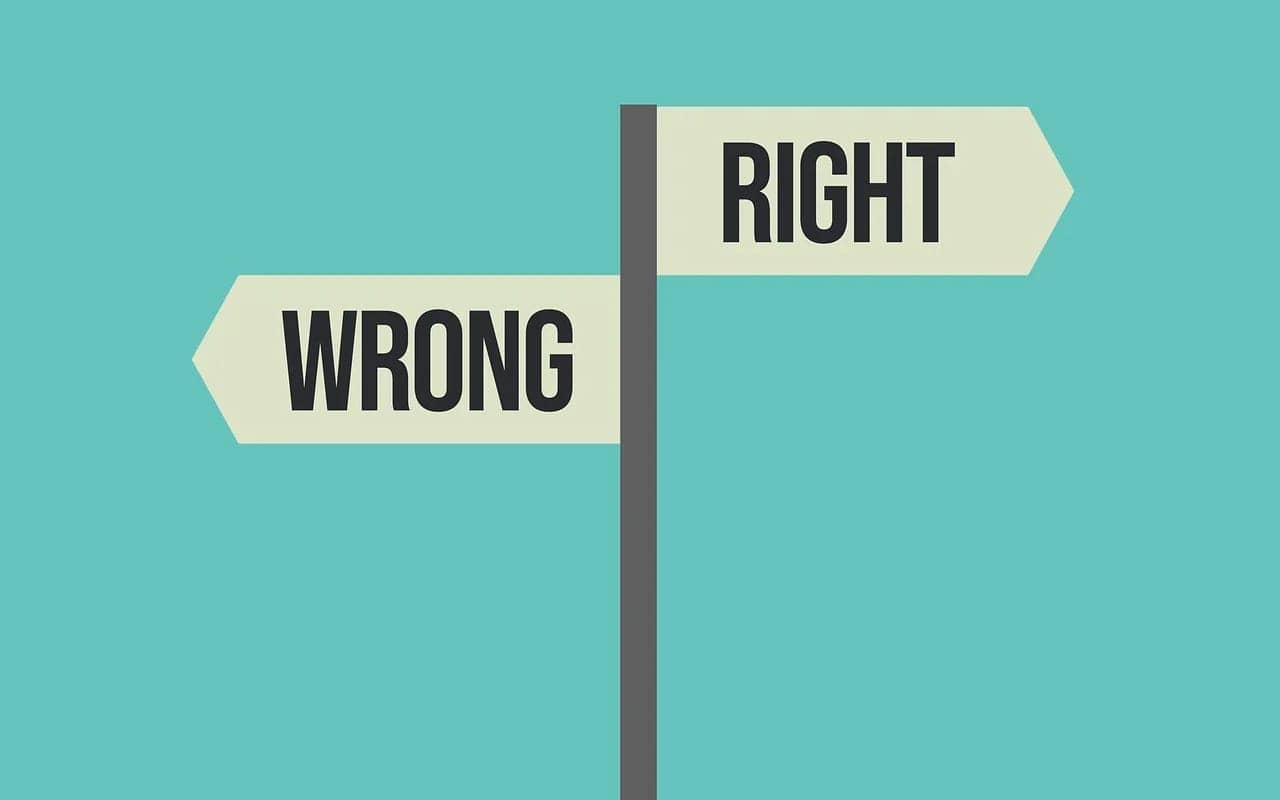Przejdź do trybu offline z Player FM !
What Is Philosophy? A Life Changing Answer
Archiwalne serie ("Kanał nieaktywny" status)
When?
This feed was archived on February 19, 2024 00:56 (
Why? Kanał nieaktywny status. Nasze serwery nie otrzymały odpowiedzi od kanału przez zbyt długi czas.
What now? You might be able to find a more up-to-date version using the search function. This series will no longer be checked for updates. If you believe this to be in error, please check if the publisher's feed link below is valid and contact support to request the feed be restored or if you have any other concerns about this.
Manage episode 320631795 series 1375140
 A major problem with philosophy is that just about every philosopher has a different definition of what they do as a philosopher.
A major problem with philosophy is that just about every philosopher has a different definition of what they do as a philosopher.
This is sad because it turns a lot of people off who would otherwise benefit tremendously from exploring the art, science and craft of philosophy.
So let’s simplify things by looking at the two ways philosophers define the field first.
- Descriptive (what philosophy is)
- Prescriptive (what philosophy should be)
Once we realize that people rotate between these two categories of definition, everything will become much clearer.
Ready?
Let’s dive deeper into the wonderful realm of philosophy!
What Is Philosophy? The Simple Answer
The most direct philosophy definition I’ve ever seen is that philosophy tries to make sense of existence. And more than merely make sense of it, know that the sense we make is true, or at least accurate. Typically, this is done through the use of reason, though there are many other philosophical tools.
Now, you might be wondering…
Why doesn’t science take all of this up?
The problem is that science is a tool that helps us gather evidence to validate or invalidate our ideas about the world. But existence itself? We don’t even know what being is or have the tools needed to study whatever existence is. And until we do, we’ll need philosophy.
Now, within existence, we find many ideas, concepts, people and objects. They all seem to exist in different ways. Yet, they are bound by a major similarity. They exist.
Philosophy tries to figure out the what, why and how of existence, or what some philosophers call Being with a capital B. Then, they work on figuring out what that knowledge about being tells us about how we should live in the world.

Now, because existence is quite complex, philosophy has split up into many different types and categories. We’ll talk about several of these in a moment.
But I mentioned above that many philosophers talk about what philosophy should be by way of defining it.
An Alternative Philosophy Definition
One classic example is found in What is Philosophy? By Gilles Deleuze and Félix Guattari. They say that philosophy should be the creation of concepts.
This is a prescriptive definition rather than the descriptive one I gave above.
The book gives examples that show how philosophers define philosophy only by creating concepts. Plato created the concept of the Idea which later influenced Descartes’ notion of cogito.
In this way of thinking, philosophy is something that influences the production of conceptual responses to previous ways of doing philosophy.
You could then say that philosophy is almost like a living thing, evolving along with the human species. This co-evolution is just one of many reasons why philosophy is so important.
And here’s the point:
If philosophy is subject to evolution, then we should do all we can to help it evolve in a positive way.
What Philosophy Is Not
What does philosophy mean?
Another way to get at the answer is to look at what philosophy isn’t. And that means looking at people who pretend to be philosophical, but aren’t.
In a work of philosophy called The Sophist by Plato, we find three key definitions of the kind of person who fails to hit the mark of creating new concepts and properly answering the questions of existence.

First, Plato points out that many people sound philosophical when in fact they’re just playing around with words. If you’ve done any amount of reflective thinking in your life, you might have wound up doing a bit of wordsmithing yourself, as have I. But that doesn’t mean what we came up with was properly analytical.
Second, Plato noticed that Sophists used tools of persuasion to win arguments. These people weren’t really concerned with the truth about existence. They just wanted to come out on top in the discussion. As a result, technique was more important to them than accuracy.
Finally, Plato felt that these people who only appeared to be doing philosophy lacked modesty. Rather than admit or even seek the limits of their knowledge, they pretended to know-it-all. Doing so is inherently un-philosophical.
With these counter-examples in mind, we can say that to be properly philosophical, you need to:
- Use clear language, or at least use language for the goal of creating clarity
- Don’t switch your analytical tools and rhetorical style just to win an argument
- Be humble and remain conscious of the limits to your present understanding
As a result, as you use philosophical thinking to pursue the truth, you will truly expand your mind.
Philosophy Throughout Time And Place
Unfortunately, it’s all too common for people to think only of philosophy in terms of specific times and places.
For example, some people focus exclusively on Continental Philosophy or only Ancient Greek Philosophy.
But as Bryan van Norden points out in his book, Taking Back Philosophy, many cultures have used philosophy to determine what existence is and use that knowledge to decide how best to live in the world.
The more you know about philosophy throughout the ages and around the globe, the better you’ll be able to formulate your own concepts as Deleuze and Guattari say that we should.
Styles of Philosophy
One of the things that makes philosophy exciting is that it comes in many different styles.
Philosophers like Plato, Hume, Bruno and many more wrote dialogs, for example. While reading them, you can imagine various characters working through the ideas.

Other books might use aphorisms or use language in ways that illustrate the point the author is trying to make.
For example, one of Friedrich Nietzsche’s points was there really aren’t any truly coherent philosophical systems. He used puns, poems and an aphoristic style to drive home the point. He also made his philosophy visually resemble the surviving fragments of the Pre-Socratic philosophers he so admired.
Likewise, Jacques Derrida explained his theories of deconstruction, the metaphysics of presence and the trace by writing in ways that showed them in action. In other words, he wasn’t merely talking about the concepts. He was doing them.
Although this frustrated many readers, Derrida was engaged in exactly what Deleuze and Gauttarri claim philosophers must do: invent concepts.
The 11 Subfields of Philosophy (And Why They’re Important)
I mentioned that philosophy is subdivided in many ways.
Let’s look at some of the most important.
One: Logic
Logic can be defined in a few ways.
First, it can refer to a particular form of argumentation. Thinking logically can help you solve problems through discussion with others, or even on your own.
Logic is also about the best possible forms of inference. As Graham Priest puts it, the norms around how we use inference change over time. There are rival theories that compete with one another over what is the exact best ways to use logic.
Two: Metaphysics
Ta meta ta physica literally means “the ones after the ones about physics.”
When Aristotle used this term to differentiate his work on physics, he was referring to the fact that humans have things to discuss for which there is no scientific process.
Whereas it is possible to think concretely about many aspects of the world, topics like being require abstract thinking. Thus, we can think of metaphysics as a kind of mental activity more than a science. It is a means of trying to make sense of things that science cannot yet account for.
Another way of thinking about metaphysics is that it is a means of working out what is real. For example, if you’ve ever tried to work out whether or not infinity is possible, you’ve engaged in metaphysical thinking. No one can physically hold infinity in the palm of their hand, so we’re forced to think about it abstractly and without the benefit of physical evidence that we can examine.
Three: Ethics
Ethics is a branch of philosophy that helps us define and improve our moral principles. Whereas some thinkers believe that morality is subjective, others believe that it is objective.
The difference matters because if people are free to believe that the definition of morality is up to them, they might make hideous decisions. But if there is a concrete means of determining what truly does lead to the most good for the most people, we can consider our obligations around implementing laws that help produce such good for the majority.
Jeremy Bentham’s felicific calculus was one interesting attempt at working out a way of measuring pleasure and happiness to help determine the moral status of different human activities.

Four: Epistemology
This type of philosophy focuses on the nature of knowledge. What does it mean to know things? What kinds of things can be known? And how do we know that we know them?
Epistemology looks at the limits of knowledge as well, and can be tremendously humbling.
Five: Philosophy of Mind
Philosophy of mind brings together many other fields. As William Jaworski puts it, the field brings together five areas of study together with metaphysics and epistemology:
- Mind and body
- Consciousness
- Mental representation
- Psychology and neuroscience
- Action theory
In this field, there tend to be two styles: monism and dualism. Whereas monism posits that there’s only one kind of thing that makes up our being, dualists argue that there are at least two kinds of properties. Monists suggest that everything is ultimately mental and dualists think there is at least the mind and the physical, material world, perhaps more.
There’s nothing particularly new about this argument. Ancient Indian philosophy, particularly Advaita Vedanta, features many discussions about monism vs. dualism.

Six: Philosophy of Science
Is it the job of science to arrive at the truth?
Some people say yes. Others, like myself, argue that science is merely a tool that helps us validate ideas and what counts as truth is always contingent. We can always run our experiments again and produce new data that may change the conclusions science has helped us produce.
Some people have created terms for these two different philosophies of science. As James Ladyman puts it in his book, Understanding Philosophy of Science:
“Scientific realism is the view that we should believe in the likes of electrons, whereas scientific antirealism is the view that we should stop believing in the truth of scientific theories and content ourselves with believing what they say about what we can observe.”
Personally, I don’t think of myself as an anti-realist whatsoever. In fact, I’m very much a Realist, even if a quirky one.
But I don’t think Ladyman means anything negative by using this term. What is a philosophy of science like mine best called? I would perhaps call it Scientific Contingency Realism. Such a term helps reflect the positive choice to acknowledge that science can always produce new data that always has at least the potential to change what we thought was once true.
Seven: Political Philosophy
When I started university, I was in Political Science. I read Plato’s Republic and had a career as a politician in mind.
However, I quickly needed to pivot into English Literature in my second year. After interviewing a politician for the school newspaper, I quickly realized that he was a tyrant. I worried that if I continued, I would become one too.

Why is this a problem?
Because political philosophy is a risky business. It’s all about the difference between political ideals and the way the world really works. As Joseph Chan puts it in Confucian Perfectionism, political philosophy almost always has an ideal in mind because:
“Any form of political theorizing that lacks an ideal is like a ship embarking on a voyage without a destination, and political theorizing that is insensitive to the constraints of reality is like a ship on rough seas without competent navigation.”
Can you see the problem here?
We don’t actually know what reality is. That’s why we still have philosophy in the first place.
Yet, politicians are that unique breed of person who thinks reality has been understood and that’s another reason I needed to get out of the Political Science program immediately. In some ways, political philosophy makes too many assumptions to really be considered a philosophy at all.
(Note: No shade to Chan, by the way. It’s a good book and he readily admits that his definition is bound to be controversial.)
Eight: Legal Philosophy
Legal philosophy has more redeeming value in my mind. This is because the law is used to help restrain and correct the overreach of the politicians.
As Matthew Kramer shows in What is Legal Philosophy?, determining what counts as evidence in a trial requires a theory of knowledge or epistemology. There are also many moral dimensions to be considered that science cannot yet answer.
Nine: Business Philosophy
Businesses face many issues, from ethics to what you might call a philosophy of performance.
How do you keep morale high? How do you respond to mistakes? What’s right and wrong with respect to the bottom line and how do you know?

In many cases, the science of business can tell you a lot about what’s going to be the most profitable way to answer those questions. But focusing on profit doesn’t always lead to longevity in the market.
Ten: Personal Philosophy
In many ways, each of us are like mini-businesses. Or at least, we’re all like entrepreneurs.
Even if you don’t have a business, you invest in your health, your education, your psychological well-being. And whenever you invest, you’re expecting a return.
Many philosophical questions arise as a result. And as Nietzsche reminds us, there’s a lot of truth out there. But we don’t always know when it’s a good idea to act just because we know that something is true. On Truth and Lies in a Nonmoral Sense goes through such issues.
To craft your own personal philosophy can be quite a challenge. That’s why I’ve been working on something to help you.
Eleven: Philosophy of Memory
I’ve often argued that the quality of our lives is directly linked to the quality of our memory abilities. After all, the ways that we act in the world rely on what we can recall on demand when we need to act or make decisions.
Even our ability to ride a bicycle well relies on the strength of our procedural memory.

To this end, I’ve started a new book, my most challenging book yet. You can get a sample chapter called The Primacy Effect if you’d like.
Part of the concept of a philosophy of memory I’m creating suggests that we need a personal philosophy of performance that exercises our memory holistically.
We’ll be doing that through many exercises, so feel free to get involved while I write the book.
How Philosophy Can Change Your Life
As we’ve seen, there are many branches of philosophy.
The question is… so what? What does it all amount to?
First, philosophy helps us question the wisdom of others and ask what’s at stake? If we have developed a personal philosophy with the notion of being in mind, we’re much less likely to take what people tell us for granted.
Likewise, when we have thought through the nature of science, we wind up being able to live more scientifically ourselves. We can be less guided by passion and experience the benefits of reason and logic.
As John Dewey once said, philosophy is best when it is a method that helps us deal with our problems.
To make it a method, we need to study and apply philosophy, ideally by creating our own concepts.
Of course, as Nigel Warburton points out in Philosophy: The Basics, there is never any guarantee that the clear thinking philosophy brings will “provide convincing answers to the difficult questions, but it does increase the chances of this happening.”
Personally, I’m grateful for how the odds have worked out in my favor thanks to philosophy.
Now, how about you?
Are you excited to dig deeper into philosophy, craft one for yourself and experience more clarity about the nature of reality?
488 odcinków
Archiwalne serie ("Kanał nieaktywny" status)
When?
This feed was archived on February 19, 2024 00:56 (
Why? Kanał nieaktywny status. Nasze serwery nie otrzymały odpowiedzi od kanału przez zbyt długi czas.
What now? You might be able to find a more up-to-date version using the search function. This series will no longer be checked for updates. If you believe this to be in error, please check if the publisher's feed link below is valid and contact support to request the feed be restored or if you have any other concerns about this.
Manage episode 320631795 series 1375140
 A major problem with philosophy is that just about every philosopher has a different definition of what they do as a philosopher.
A major problem with philosophy is that just about every philosopher has a different definition of what they do as a philosopher.
This is sad because it turns a lot of people off who would otherwise benefit tremendously from exploring the art, science and craft of philosophy.
So let’s simplify things by looking at the two ways philosophers define the field first.
- Descriptive (what philosophy is)
- Prescriptive (what philosophy should be)
Once we realize that people rotate between these two categories of definition, everything will become much clearer.
Ready?
Let’s dive deeper into the wonderful realm of philosophy!
What Is Philosophy? The Simple Answer
The most direct philosophy definition I’ve ever seen is that philosophy tries to make sense of existence. And more than merely make sense of it, know that the sense we make is true, or at least accurate. Typically, this is done through the use of reason, though there are many other philosophical tools.
Now, you might be wondering…
Why doesn’t science take all of this up?
The problem is that science is a tool that helps us gather evidence to validate or invalidate our ideas about the world. But existence itself? We don’t even know what being is or have the tools needed to study whatever existence is. And until we do, we’ll need philosophy.
Now, within existence, we find many ideas, concepts, people and objects. They all seem to exist in different ways. Yet, they are bound by a major similarity. They exist.
Philosophy tries to figure out the what, why and how of existence, or what some philosophers call Being with a capital B. Then, they work on figuring out what that knowledge about being tells us about how we should live in the world.

Now, because existence is quite complex, philosophy has split up into many different types and categories. We’ll talk about several of these in a moment.
But I mentioned above that many philosophers talk about what philosophy should be by way of defining it.
An Alternative Philosophy Definition
One classic example is found in What is Philosophy? By Gilles Deleuze and Félix Guattari. They say that philosophy should be the creation of concepts.
This is a prescriptive definition rather than the descriptive one I gave above.
The book gives examples that show how philosophers define philosophy only by creating concepts. Plato created the concept of the Idea which later influenced Descartes’ notion of cogito.
In this way of thinking, philosophy is something that influences the production of conceptual responses to previous ways of doing philosophy.
You could then say that philosophy is almost like a living thing, evolving along with the human species. This co-evolution is just one of many reasons why philosophy is so important.
And here’s the point:
If philosophy is subject to evolution, then we should do all we can to help it evolve in a positive way.
What Philosophy Is Not
What does philosophy mean?
Another way to get at the answer is to look at what philosophy isn’t. And that means looking at people who pretend to be philosophical, but aren’t.
In a work of philosophy called The Sophist by Plato, we find three key definitions of the kind of person who fails to hit the mark of creating new concepts and properly answering the questions of existence.

First, Plato points out that many people sound philosophical when in fact they’re just playing around with words. If you’ve done any amount of reflective thinking in your life, you might have wound up doing a bit of wordsmithing yourself, as have I. But that doesn’t mean what we came up with was properly analytical.
Second, Plato noticed that Sophists used tools of persuasion to win arguments. These people weren’t really concerned with the truth about existence. They just wanted to come out on top in the discussion. As a result, technique was more important to them than accuracy.
Finally, Plato felt that these people who only appeared to be doing philosophy lacked modesty. Rather than admit or even seek the limits of their knowledge, they pretended to know-it-all. Doing so is inherently un-philosophical.
With these counter-examples in mind, we can say that to be properly philosophical, you need to:
- Use clear language, or at least use language for the goal of creating clarity
- Don’t switch your analytical tools and rhetorical style just to win an argument
- Be humble and remain conscious of the limits to your present understanding
As a result, as you use philosophical thinking to pursue the truth, you will truly expand your mind.
Philosophy Throughout Time And Place
Unfortunately, it’s all too common for people to think only of philosophy in terms of specific times and places.
For example, some people focus exclusively on Continental Philosophy or only Ancient Greek Philosophy.
But as Bryan van Norden points out in his book, Taking Back Philosophy, many cultures have used philosophy to determine what existence is and use that knowledge to decide how best to live in the world.
The more you know about philosophy throughout the ages and around the globe, the better you’ll be able to formulate your own concepts as Deleuze and Guattari say that we should.
Styles of Philosophy
One of the things that makes philosophy exciting is that it comes in many different styles.
Philosophers like Plato, Hume, Bruno and many more wrote dialogs, for example. While reading them, you can imagine various characters working through the ideas.

Other books might use aphorisms or use language in ways that illustrate the point the author is trying to make.
For example, one of Friedrich Nietzsche’s points was there really aren’t any truly coherent philosophical systems. He used puns, poems and an aphoristic style to drive home the point. He also made his philosophy visually resemble the surviving fragments of the Pre-Socratic philosophers he so admired.
Likewise, Jacques Derrida explained his theories of deconstruction, the metaphysics of presence and the trace by writing in ways that showed them in action. In other words, he wasn’t merely talking about the concepts. He was doing them.
Although this frustrated many readers, Derrida was engaged in exactly what Deleuze and Gauttarri claim philosophers must do: invent concepts.
The 11 Subfields of Philosophy (And Why They’re Important)
I mentioned that philosophy is subdivided in many ways.
Let’s look at some of the most important.
One: Logic
Logic can be defined in a few ways.
First, it can refer to a particular form of argumentation. Thinking logically can help you solve problems through discussion with others, or even on your own.
Logic is also about the best possible forms of inference. As Graham Priest puts it, the norms around how we use inference change over time. There are rival theories that compete with one another over what is the exact best ways to use logic.
Two: Metaphysics
Ta meta ta physica literally means “the ones after the ones about physics.”
When Aristotle used this term to differentiate his work on physics, he was referring to the fact that humans have things to discuss for which there is no scientific process.
Whereas it is possible to think concretely about many aspects of the world, topics like being require abstract thinking. Thus, we can think of metaphysics as a kind of mental activity more than a science. It is a means of trying to make sense of things that science cannot yet account for.
Another way of thinking about metaphysics is that it is a means of working out what is real. For example, if you’ve ever tried to work out whether or not infinity is possible, you’ve engaged in metaphysical thinking. No one can physically hold infinity in the palm of their hand, so we’re forced to think about it abstractly and without the benefit of physical evidence that we can examine.
Three: Ethics
Ethics is a branch of philosophy that helps us define and improve our moral principles. Whereas some thinkers believe that morality is subjective, others believe that it is objective.
The difference matters because if people are free to believe that the definition of morality is up to them, they might make hideous decisions. But if there is a concrete means of determining what truly does lead to the most good for the most people, we can consider our obligations around implementing laws that help produce such good for the majority.
Jeremy Bentham’s felicific calculus was one interesting attempt at working out a way of measuring pleasure and happiness to help determine the moral status of different human activities.

Four: Epistemology
This type of philosophy focuses on the nature of knowledge. What does it mean to know things? What kinds of things can be known? And how do we know that we know them?
Epistemology looks at the limits of knowledge as well, and can be tremendously humbling.
Five: Philosophy of Mind
Philosophy of mind brings together many other fields. As William Jaworski puts it, the field brings together five areas of study together with metaphysics and epistemology:
- Mind and body
- Consciousness
- Mental representation
- Psychology and neuroscience
- Action theory
In this field, there tend to be two styles: monism and dualism. Whereas monism posits that there’s only one kind of thing that makes up our being, dualists argue that there are at least two kinds of properties. Monists suggest that everything is ultimately mental and dualists think there is at least the mind and the physical, material world, perhaps more.
There’s nothing particularly new about this argument. Ancient Indian philosophy, particularly Advaita Vedanta, features many discussions about monism vs. dualism.

Six: Philosophy of Science
Is it the job of science to arrive at the truth?
Some people say yes. Others, like myself, argue that science is merely a tool that helps us validate ideas and what counts as truth is always contingent. We can always run our experiments again and produce new data that may change the conclusions science has helped us produce.
Some people have created terms for these two different philosophies of science. As James Ladyman puts it in his book, Understanding Philosophy of Science:
“Scientific realism is the view that we should believe in the likes of electrons, whereas scientific antirealism is the view that we should stop believing in the truth of scientific theories and content ourselves with believing what they say about what we can observe.”
Personally, I don’t think of myself as an anti-realist whatsoever. In fact, I’m very much a Realist, even if a quirky one.
But I don’t think Ladyman means anything negative by using this term. What is a philosophy of science like mine best called? I would perhaps call it Scientific Contingency Realism. Such a term helps reflect the positive choice to acknowledge that science can always produce new data that always has at least the potential to change what we thought was once true.
Seven: Political Philosophy
When I started university, I was in Political Science. I read Plato’s Republic and had a career as a politician in mind.
However, I quickly needed to pivot into English Literature in my second year. After interviewing a politician for the school newspaper, I quickly realized that he was a tyrant. I worried that if I continued, I would become one too.

Why is this a problem?
Because political philosophy is a risky business. It’s all about the difference between political ideals and the way the world really works. As Joseph Chan puts it in Confucian Perfectionism, political philosophy almost always has an ideal in mind because:
“Any form of political theorizing that lacks an ideal is like a ship embarking on a voyage without a destination, and political theorizing that is insensitive to the constraints of reality is like a ship on rough seas without competent navigation.”
Can you see the problem here?
We don’t actually know what reality is. That’s why we still have philosophy in the first place.
Yet, politicians are that unique breed of person who thinks reality has been understood and that’s another reason I needed to get out of the Political Science program immediately. In some ways, political philosophy makes too many assumptions to really be considered a philosophy at all.
(Note: No shade to Chan, by the way. It’s a good book and he readily admits that his definition is bound to be controversial.)
Eight: Legal Philosophy
Legal philosophy has more redeeming value in my mind. This is because the law is used to help restrain and correct the overreach of the politicians.
As Matthew Kramer shows in What is Legal Philosophy?, determining what counts as evidence in a trial requires a theory of knowledge or epistemology. There are also many moral dimensions to be considered that science cannot yet answer.
Nine: Business Philosophy
Businesses face many issues, from ethics to what you might call a philosophy of performance.
How do you keep morale high? How do you respond to mistakes? What’s right and wrong with respect to the bottom line and how do you know?

In many cases, the science of business can tell you a lot about what’s going to be the most profitable way to answer those questions. But focusing on profit doesn’t always lead to longevity in the market.
Ten: Personal Philosophy
In many ways, each of us are like mini-businesses. Or at least, we’re all like entrepreneurs.
Even if you don’t have a business, you invest in your health, your education, your psychological well-being. And whenever you invest, you’re expecting a return.
Many philosophical questions arise as a result. And as Nietzsche reminds us, there’s a lot of truth out there. But we don’t always know when it’s a good idea to act just because we know that something is true. On Truth and Lies in a Nonmoral Sense goes through such issues.
To craft your own personal philosophy can be quite a challenge. That’s why I’ve been working on something to help you.
Eleven: Philosophy of Memory
I’ve often argued that the quality of our lives is directly linked to the quality of our memory abilities. After all, the ways that we act in the world rely on what we can recall on demand when we need to act or make decisions.
Even our ability to ride a bicycle well relies on the strength of our procedural memory.

To this end, I’ve started a new book, my most challenging book yet. You can get a sample chapter called The Primacy Effect if you’d like.
Part of the concept of a philosophy of memory I’m creating suggests that we need a personal philosophy of performance that exercises our memory holistically.
We’ll be doing that through many exercises, so feel free to get involved while I write the book.
How Philosophy Can Change Your Life
As we’ve seen, there are many branches of philosophy.
The question is… so what? What does it all amount to?
First, philosophy helps us question the wisdom of others and ask what’s at stake? If we have developed a personal philosophy with the notion of being in mind, we’re much less likely to take what people tell us for granted.
Likewise, when we have thought through the nature of science, we wind up being able to live more scientifically ourselves. We can be less guided by passion and experience the benefits of reason and logic.
As John Dewey once said, philosophy is best when it is a method that helps us deal with our problems.
To make it a method, we need to study and apply philosophy, ideally by creating our own concepts.
Of course, as Nigel Warburton points out in Philosophy: The Basics, there is never any guarantee that the clear thinking philosophy brings will “provide convincing answers to the difficult questions, but it does increase the chances of this happening.”
Personally, I’m grateful for how the odds have worked out in my favor thanks to philosophy.
Now, how about you?
Are you excited to dig deeper into philosophy, craft one for yourself and experience more clarity about the nature of reality?
488 odcinków
Alle Folgen
×Zapraszamy w Player FM
Odtwarzacz FM skanuje sieć w poszukiwaniu wysokiej jakości podcastów, abyś mógł się nią cieszyć już teraz. To najlepsza aplikacja do podcastów, działająca na Androidzie, iPhonie i Internecie. Zarejestruj się, aby zsynchronizować subskrypcje na różnych urządzeniach.




